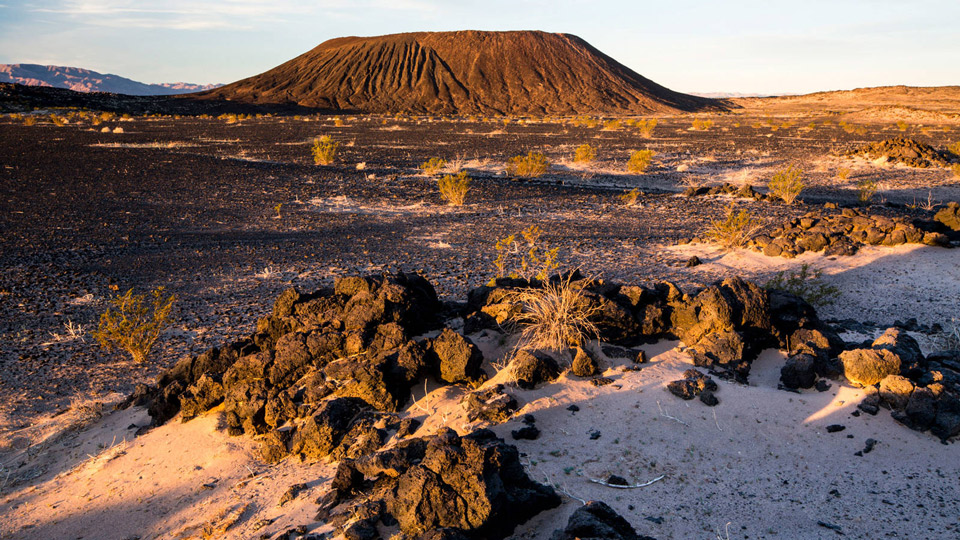
Amboy Crater, a volcanic cinder cone at Mojave Trails National Monument.
Credit: Bob Wick/Bureau of Land Management
August 1, 2019 - Washington—Senator Dianne Feinstein (D-Calif.) released the following statement on SB 307, California State Senator Richard Roth’s (D-Riverside) bill to protect the Mojave Desert, after Governor Newsom signed it into law:
“For decades, Cadiz has tried to skirt federal permitting and rob the Mojave Desert of its most precious resource, water. Thanks to Governor Newsom’s signature, that effort has been thwarted and California now has significantly stronger protections for desert aquifers.
“Water is the lifeblood of the California desert. If Cadiz were allowed to drain a vital desert aquifer, everything that makes our desert special – from bighorn sheep and desert tortoises to Joshua trees and breathtaking wildflower blooms – would have been endangered.
“Additionally, surrounding communities whose economies depend on a healthy desert would have suffered in order for a private company to profit. That won’t happen now.
“I applaud Governor Newsom and his longstanding support of this important issue. I also want to thank California Speaker Rendon, Senator Roth, Assemblymember Friedman and members of the legislature who stood up to protect our iconic desert. Without their leadership and perseverance, this couldn’t have happened.”
Background
- Cadiz for years has sought to exploit an 1875 railroad law to use an existing railroad right of way to escape any federal environmental review of its proposed pipeline.
- In 2011, the Obama administration issued guidelines for railroad rights of way. Those guidelines were in response to two federal court rulings requiring environmental reviews for projects that don’t serve a railroad purpose.
- After a multi-year review, the Obama administration determined in 2015 that Cadiz’s project did not further a railroad purpose and therefore must obtain federal permits and undergo a NEPA review like all similar projects.
- In 2017, the Trump administration reversed the 2011 legal opinion and the 2015 determination to allow Cadiz to move forward without federal permits.
- Last month, a federal judge rejected the 2015 determination and blocked Cadiz from using the railroad right of way without a federal permit. Cadiz’s CEO has stated he’ll ask the Trump administration to rewrite its determination in a more favorable way.
- Regardless of that outcome, SB 307 will require a commonsense state review process that safeguards California’s fragile desert lands and groundwater basins.
- In 2011, the Obama administration issued guidelines for railroad rights of way. Those guidelines were in response to two federal court rulings requiring environmental reviews for projects that don’t serve a railroad purpose.
- The Cadiz Water Project would drain an underground aquifer in the Mojave Desert at a rate that independent scientists have determined is unsustainable.
- Cadiz asserts that the aquifer’s water natural recharge rate is 32,000 acre-feet per year and proposes to export an average of 50,000 acre-feet from the region each year over a 50-year period.
- However, the U.S. Geological Survey has stated the recharge rate is only 2,000 to 10,000 acre-feet per year. The National Park Service has confirmed that analysis.
- In its comments on the Cadiz project’s Draft Environmental Impact Report, the National Park Service concluded that Cadiz’s estimated annual recharge rates “are not reasonable and should not even be considered.”
Source: Senator Dianne Feinstein
Related: Federal Court Rejects Trump Administration’s Approval of California’s Cadiz Water Pipeline, National Parks Conservation Association Reports
- Cadiz asserts that the aquifer’s water natural recharge rate is 32,000 acre-feet per year and proposes to export an average of 50,000 acre-feet from the region each year over a 50-year period.








